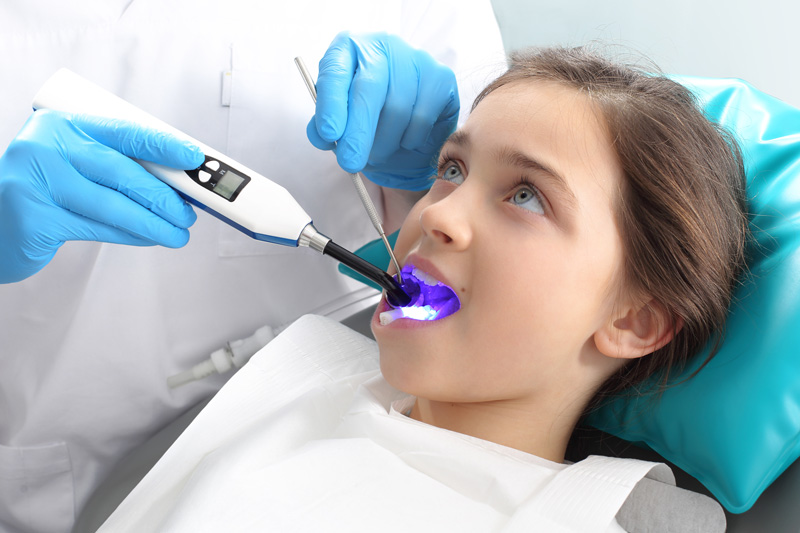
The staff at Tedford Family Dentistry in Ooltewah, TN always stresses the importance of taking care of your teeth. Regular brushing and flossing, avoiding sugary food and drinks, and consistent cleanings and dental exams are all crucial in maintaining a healthy mouth. When we slack on these things, the effects can often be painful and extremely costly to rectify. Filling cavities, getting root canals and needing crowns are things we all want to avoid. But in addition to proper cleaning, dental sealants are a great way to help keep tooth decay at bay.
Molars can be rough and craggy, with lots of tight nooks and crannies for food particles and bacteria to hide. This is where sealants come in! You can actually safeguard your child’s molars with these thin, protective coatings that can actually keep cavities from forming, as well as keep minor tooth decay from progressing into full-blown cavities that require fillings.
According to the Centers for Disease Control and Prevention, dental sealants prevent 80% of cavities in back teeth or molars, where 9 out of 10 cavities occur. The CDC also reports school-aged children without sealants have almost three times more cavities than children who do have sealants.
Sealants are basically like armor for your teeth. After application, the sealants keep bits of food, germs, and bacteria (the recipe for cavity-making) from settling on the surfaces of the teeth, just like a shield would protect you in battle.
Your dentist can quickly and easily apply sealants to adult and baby teeth in both adults and children. It’s a completely painless and non-invasive process. Your dentist will first clean and dry the surface of the tooth then place on it an acidic gel. The gel acts as a bonding agent for the sealant by creating a rougher surface for it to grab onto. After applying this gel and allowing it to set, your dentist will simply rinse it off, apply the sealant material, then harden or set it with a special instrument called a dental curing light (also used for fillings, etc).
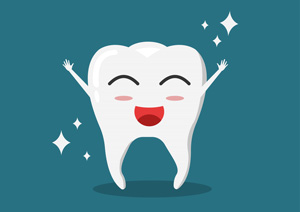
Many dental insurance plans cover the cost of sealants. If you’re not sure about your coverage, call your provider to check in about it. Covered or not, sealants should be part of every parent’s low cost dental care regimen, as they can prevent cavities and other dental problems that are extremely costly to address. As purveyors of great dental care from pediatric dentistry all the way through adulthood, the staff Tedford Family Dental recommends all children have sealants applied to their teeth. Preventative is always the best approach when it comes to a healthy mouth.
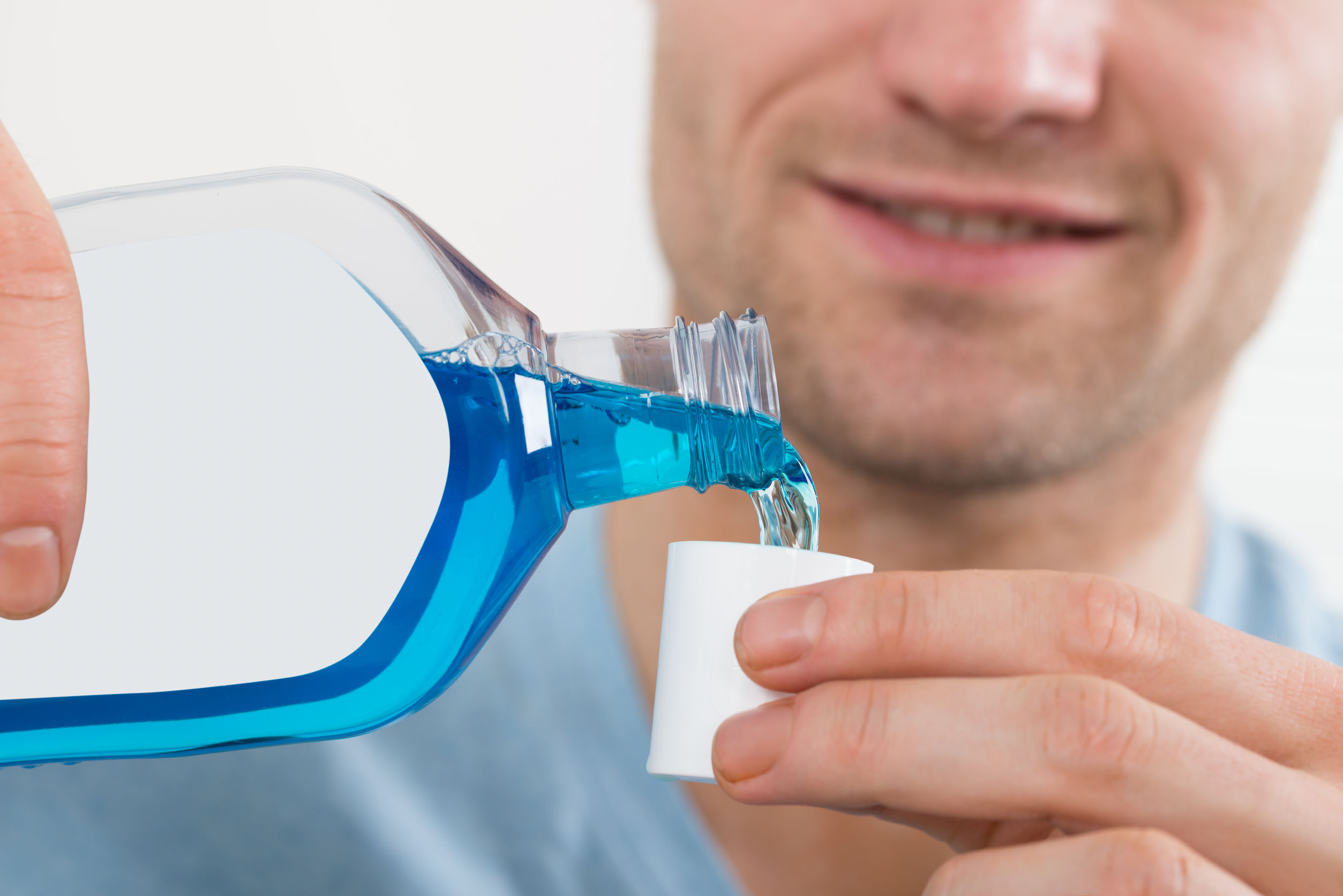 Did you know there is more than one type of mouthwash? Cosmetic mouthwashes will address short term bad breath, while therapeutic mouthwashes are designed to address numerous dental concerns that can improve your oral health. Whichever type you pick, you’ll find there are plenty of reasons to reach for some type of mouthwash next time you’re are the store. Perhaps you’re on your way to a job interview or a date and are worried about your breath smelling fresh. Or you’re worried that flossing isn’t going far enough in your quest to get rid of plaque. Maybe your dentist told you to take an extra step to prevent gingivitis and tooth decay. Or maybe you’ve had a toothache, and you’re looking for a little extra relief.
Did you know there is more than one type of mouthwash? Cosmetic mouthwashes will address short term bad breath, while therapeutic mouthwashes are designed to address numerous dental concerns that can improve your oral health. Whichever type you pick, you’ll find there are plenty of reasons to reach for some type of mouthwash next time you’re are the store. Perhaps you’re on your way to a job interview or a date and are worried about your breath smelling fresh. Or you’re worried that flossing isn’t going far enough in your quest to get rid of plaque. Maybe your dentist told you to take an extra step to prevent gingivitis and tooth decay. Or maybe you’ve had a toothache, and you’re looking for a little extra relief.
Whatever your reason for wanting to swish, you don’t need to feel limited to a minty concoction with a harsh burn. Not only are there two main categories of mouthwash, there are many brands and flavors now on the market. Which one you choose depends on your dental health needs, price point, and what tastes you like. But here are few ingredients to look out for that might help you narrow down the playing field:
Therapeutic mouthwashes tend to contain ingredients including:
Cetylpyridinium chloride sounds like something out of chemistry class, but it’s not so complicated. It’s simply an antiseptic that kills bacteria in your mouth, including those that cause odor. Instead of simply covering up odors on your breath, this ingredient tackles the cause, and can help kill bacteria in hard to reach places after you brush or floss.
Chlorhexidine and essential oils can both be used to combat plaque and gingivitis. The main difference is that chlorhexidine can only be obtained by prescription. That’s because it’s so good at killing bacteria it’s also an ingredient in surgical hand scrub! Certain essential oils can also have antimicrobial properties, without killing good bacteria and while providing a tasty flavor.
Fluoride is a familiar ingredient you might recognize from your toothpaste package. It helps protect your tooth enamel by helping to repel acids, sugars, and bacteria in the mouth before they can cause trouble. You should wait for at least 30 minutes after using a fluoride product to give the ingredient a chance to reach maximum protective effectiveness.
Peroxide is also a way to disinfect your mouth, but it doesn’t have the harsh burn that many associate with alcohol-based mouthwashes. Not only can it help kill bacteria around your teeth and gums, it can also sooth mouth ulcers.
Keep in mind that children under 7 should brush their teeth and learn good flossing habits, but they shouldn’t use mouthwash because their swallow skills might not be developed enough to keep them from ingesting some of the product. Mouthwash is great in your mouth, but it’s not so great in your stomach!
If you still feel overwhelmed by the options, talk to your dentists and dental hygienists at Tedford Dentistry! We’d be happy to help you find a product that keeps your teeth clean and your mouth healthy that is just right for your smile. Whether you’re tackling a specific periodontal condition or just want to keep your whites bright and your breath smelling great, we’ll point you in the right direction.
 Below are some simple, general tips from our Ooltewah dentist to keep your dentures, either complete or partial dentures, in good shape.
Below are some simple, general tips from our Ooltewah dentist to keep your dentures, either complete or partial dentures, in good shape.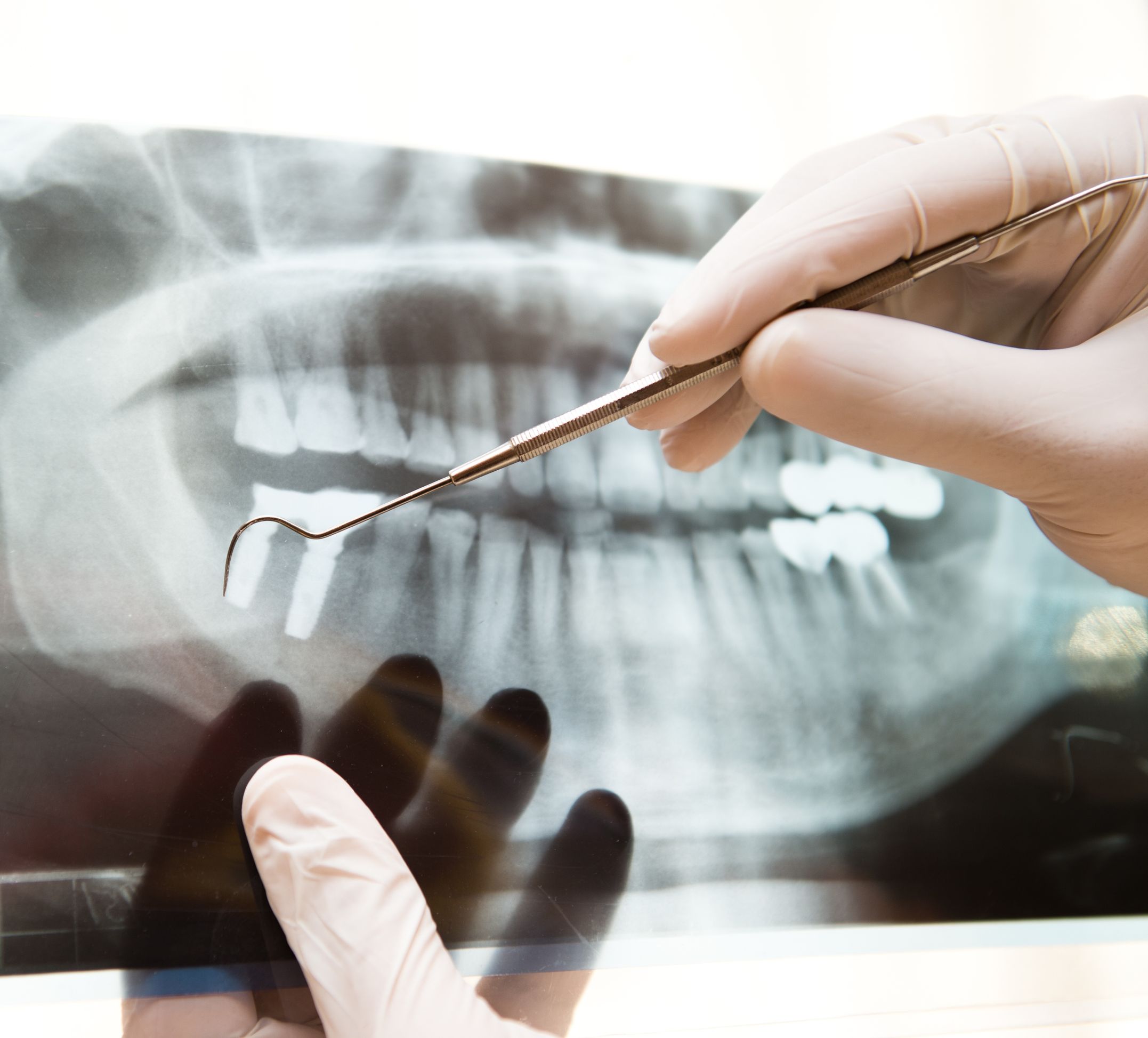
Two words: root canal. These words often come with a chill, followed by jaw clenching, and phantom tooth pain. While the procedure has gained a bad rap among the general population, root canal treatments have significantly improved through the years with advancement in technology. In an attempt to bring awareness to Root Canal Week, March 27 - April 2, we hope to answer your endless endodontic questions on root canals.
When is a root canal needed?
If your Ooltewah dentist or endodontic specialist recommends root canal treatment, you may have inflammation, infection, or an abscess, resulting from deep decay, a cracked or chipped tooth, or injury. Root canal treatments are needed to save a tooth after the soft tissue inside the root canal, known as the pulp, becomes inflamed or infected.
What are the symptoms for necessary endodontic treatment?
Symptoms include: tooth pain, extreme sensitivity to touch, chewing, and temperatures (hot or cold), tooth discoloration, inflammation and swelling, and excessive drainage of lymph nodes. In some cases, the listed effects may or may not be visible; sometimes, there are no symptoms at all. Consult your Ooltewah dentist for further examination if you are experiencing one or more of these symptoms.
What steps are involved in the procedure?
Step 1.Following an examination and x-rays, a local anesthetic will be administered to numb the inflamed or infected tooth. Next, a small “dental dam” is placed over the tooth area to keep it clean during the procedure.
Step 2. A small opening is made in the crown of the tooth. Using minimally invasive instruments, the pulp from the chamber is cleaned which makes room in the canal for filling.
Step 3. Once cleaned, the root canal is then filled with a rubbery, thermoplastic material called gutta-percha, which is placed with an adhesive cement to ensure a proper seal of the root canals. A temporary filling is often placed to close the opening, and later removed by your dentist.
Step 4. On your final visit, a crown is placed on top of the tooth, which is used to restore to original function.
Ask your Ooltewah dentist at Tedford Family Dentistry for more details about the specific restoration process, and how root canal treatments can keep your smile beautiful and bright!
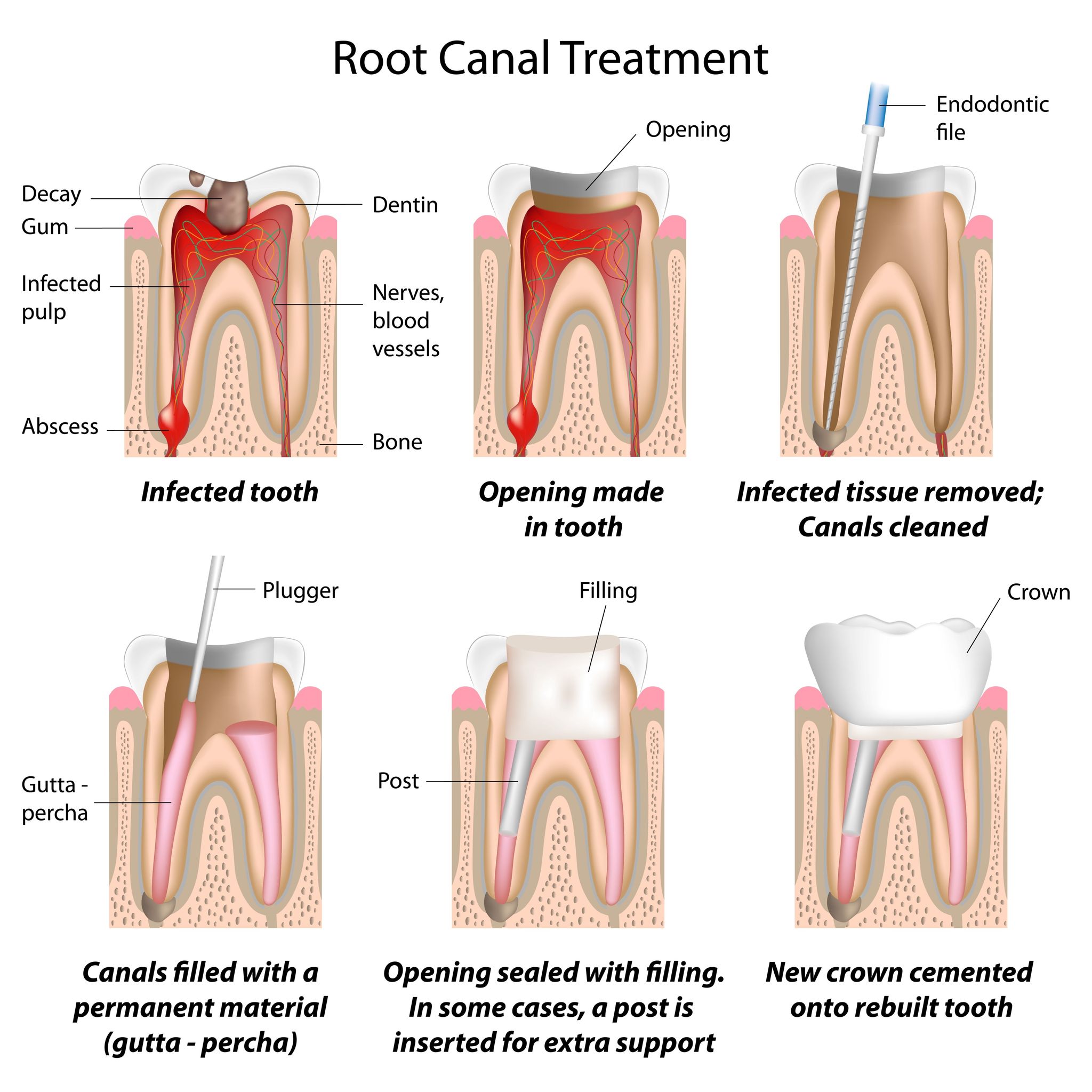
 We’ve all heard the saying that you are what you eat. Those words couldn’t be more accurate when it comes to oral health. According to the American Dental Association, your dental health is the first thing to suffer from a poor diet. Improve your overall health with these super foods:
We’ve all heard the saying that you are what you eat. Those words couldn’t be more accurate when it comes to oral health. According to the American Dental Association, your dental health is the first thing to suffer from a poor diet. Improve your overall health with these super foods: One of the first things people notice when meeting you is your smile. Along with a bright and shining smile comes energy and confidence. Additionally, studies have reported that people with brighter, whiter smiles are perceived as being younger.
One of the first things people notice when meeting you is your smile. Along with a bright and shining smile comes energy and confidence. Additionally, studies have reported that people with brighter, whiter smiles are perceived as being younger.  From the cold unusual objects to unfamiliar surroundings, children and adults alike share fears of the dentist. No matter the fears, visits to the dentist will keep teeth healthy and promote good oral health habits. Here are a few tips to keeping the fears at bay and their smile pearly white.
From the cold unusual objects to unfamiliar surroundings, children and adults alike share fears of the dentist. No matter the fears, visits to the dentist will keep teeth healthy and promote good oral health habits. Here are a few tips to keeping the fears at bay and their smile pearly white.
The Earlier the Better
The younger a child is when they start visiting a dentist, the more likely they will become comfortable with the surroundings and the dentist. According to the American Academy of Pediatric Dentistry, your child’s first trip to the dentist should be at age one or when their first tooth is visible. Early prevention will increase the overall health of your mouth.
According to several studies, more preschool students have cavities than ever before. The national study states that, “more than 1 in 4 children in the United states has had at least one cavity by the age of 4. Many kids get cavities as early as age 2.”
Don’t Over Share
Try not to share too many details before dental appointments. Too much explaining can result in more questions as well is scare many children. Keep a positive attitude and let the dentist and hygienists explain the procedures. Also, refrain from taking your children to your dentist appointment. Even though you may not realize it, you may be anxious. Telling about past or current procedures can instill more fear, especially if those procedures are not necessary.
Play Pretend
Grab a toothbrush and let your child practice being both the dentist and the patient. Brushing and counting teeth will help to prepare them for the actual office visit. You want your child to become familiar with the routine in hopes that they will be more comfortable with the procedures. Additionally, there are a variety of children’s books with illustrations that are design to educate and relieve fears of the dentist.
Fussing is Normal
Pediatric dentists are used to children and tantrums. It is normal that a child will cry, whine or fuss during an appointment. Allow the staff to guide and direct you. Many will ask that you hold your child’s hand to help comfort them during the visit. If your little one has a favorite toy or stuffed animal, bring that as a comfort and distraction.
Encouraging the importance of good dental health is important. Explain that the dentist helps to keep their smile pretty, and that regular visits are necessary. Follow these tips are your child is sure to overcome their fears.
Our Ooltewah pediatric denistry office can help calm your child's fears of the dentist as well as keep their teeth pearly white.
Written by Tiffany Hutton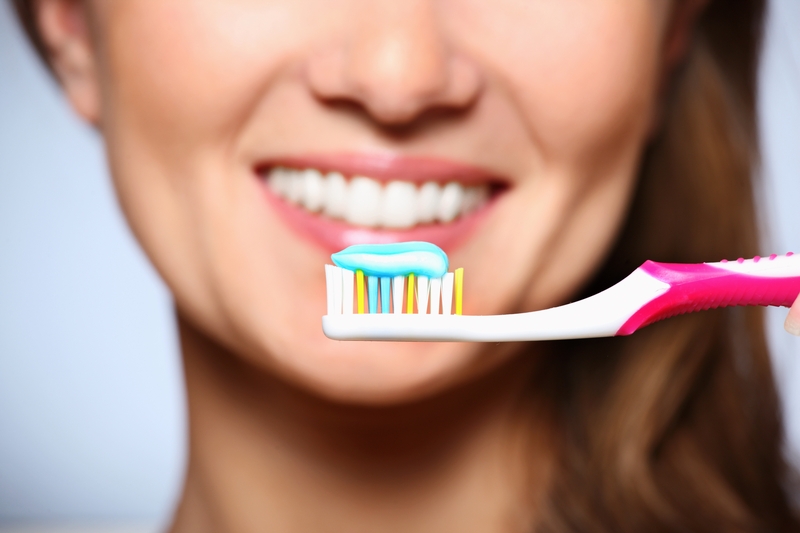 Your smile is one of the first things people notice about you, so it’s important to keep it at its best. Brushing and flossing are important to overall dental health, but there are other steps you can take to keep your teeth pearly white.
Your smile is one of the first things people notice about you, so it’s important to keep it at its best. Brushing and flossing are important to overall dental health, but there are other steps you can take to keep your teeth pearly white.  Age, health conditions and other factors can all put seniors at risk for a number of oral health issues. Oral health is an important component of overall health and well-being, but can often be overlooked. There are several conditions that are commonly found in senior patients:
Age, health conditions and other factors can all put seniors at risk for a number of oral health issues. Oral health is an important component of overall health and well-being, but can often be overlooked. There are several conditions that are commonly found in senior patients: